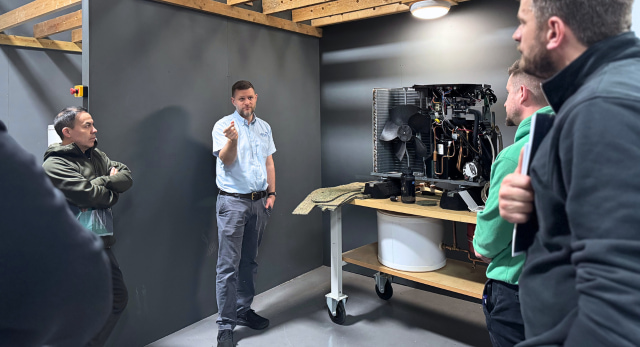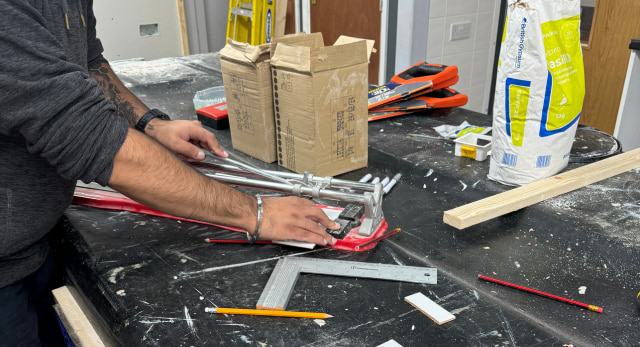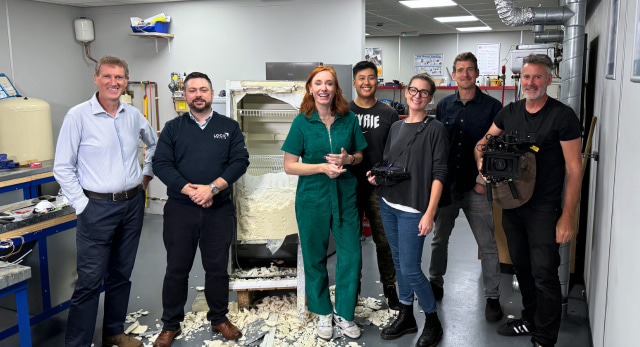With 2025 well underway, it’s time to look back at the remarkable progress made in the UK’s renewable energy sector. The Microgeneration Certification Scheme (MCS) has released its 2024 Standards Update, and the numbers are nothing short of impressive. Let’s dive into the highlights and what they mean for the future of small-scale renewables in the UK.
A Record-Breaking Year for Installations
2024 was a record-breaking year for small-scale renewable installations, with over 260,000 MCS-certified systems finding their way into UK homes and businesses. This 7% increase from 2023 underscores the growing commitment to sustainable energy solutions across the nation.
Solar PV Leads the Charge
Solar photovoltaic (PV) systems continued to dominate the renewable landscape, with 184,462 installations in 2024. While this represents a slight 7% drop from 2023, it’s still a significant number that showcases the enduring popularity of solar energy.
What’s more encouraging is the decreasing cost of solar installations. The average price across 2024 fell from £9,238 in January to £7,561 in December, making solar more accessible than ever before.
Heat Pumps on the Rise
Perhaps the most predicted trend of 2024 was the surge in heat pump installations. With almost 60,000 certified installations, heat pumps saw a 43% increase compared to 2023. This growth aligns perfectly with the UK government’s ambitious target of 600,000 annual heat pump installations by 2028, as outlined in the Heat & Buildings Strategy.
Battery Storage Sees the Biggest Change
The most remarkable trend of 2024 was the explosive growth in battery storage installations. With 17,551 certified installations, battery storage saw an astounding 105.8% increase compared to 2023. This surge aligns with the growing desire for energy independence and the ability to maximise the benefits of solar PV systems.
The rapid adoption of battery storage is driven by several factors:
- Decreasing costs: Despite rising raw material prices, battery storage prices continued to decline in 2024 due to oversupply and technological advancements.
- Government support: Many countries, including the UK, have committed to expanding energy storage capacity, recognising its crucial role in grid stability and renewable energy integration.
- Consumer demand: Homeowners are increasingly seeking to store their home-grown energy, reduce energy bills, and achieve energy independence.
- Complementary technology: 85% of certified battery storage installations in early 2024 were installed alongside solar PV systems, indicating a growing trend of combining these technologies.
Breaking Down the Numbers
Let’s take a closer look at how different technologies fared in 2024:
| Technology |
2024 |
Change from |
|---|---|---|
| Solar PV | 184,462 | -7% |
| Air Source Heat Pumps | 56,450 | +49.6% |
| Battery Storage | 17,551 | +105.8% |
| Ground/Water Source Heat Pumps | 1,456 | -46.1% |
| Solar Heating | 180 | -42.5% |
| Biomass | 183 | -9.9% |
The explosive growth in battery storage installations is particularly noteworthy, more than doubling from the previous year. This trend reflects the increasing desire for energy independence and the ability to maximize the benefits of solar PV systems.
What This Means for Installers
For MCS-certified installers, these numbers represent a wealth of opportunities. The growing demand for renewable technologies, especially heat pumps and battery storage, means there’s never been a better time to expand your skills and services.
However, it’s crucial to stay up-to-date with the latest MCS standards and certifications. The MCS is continually evolving to ensure the highest quality installations and customer satisfaction. In fact, the scheme is set for a significant redevelopment in 2025, with changes aimed at simplifying the certification process while maintaining robust technical and consumer protection standards.
Looking Ahead
As we move further into 2025, the renewable energy sector shows no signs of slowing down. The UK government’s commitment to net zero emissions by 2050 continues to drive growth and innovation in the industry.
For those considering a career in renewable energy installation, now is the time to act. With the right training and certifications, you can be part of this exciting and rapidly growing field. At Logic4training, we offer a range of courses to help you get MCS certified and stay ahead of the curve in this dynamic industry.
Remember, the future of energy is renewable, and it’s being built one installation at a time. Whether you’re an experienced installer looking to expand your services or someone considering a career change, the renewable energy sector offers a world of opportunities. Let’s work together to create a more sustainable future for the UK.
MCS Installer Scheme Redevelopment
Throughout 2025, the Microgeneration Certification Scheme (MCS) is undergoing a significant transformation. After dedicated efforts throughout 2024 to achieve UKAS accreditation for the Redeveloped Installer Scheme, MCS has now released new Scheme documents, updated Standards, and associated processes early in 2025. This marks a pivotal moment in enhancing standards for small-scale renewables.
Key Changes in the Redeveloped Scheme
The redeveloped scheme aims to simplify and clarify the certification process for installers while maintaining robust technical and consumer protection standards. Here are the main elements:
- Reduced focus on paperwork, emphasizing delivered quality.
- Risk-based assessment frequency.
- Standardised assessments.
- Centralised customer complaint management.
- A more direct relationship between installers and MCS.
- Consumer Code Membership is no longer mandatory.
- These changes are designed to streamline processes, improve quality assurance, and enhance the overall effectiveness of the scheme.
Standards Under Review
As part of the ongoing commitment to maintaining up-to-date and relevant standards, MCS has several standards under review in 2025, including:
- MIS 3005 D: The Heat Pump Design Standard
- MIS 3005 I: The Heat Pump Installation Standard
- MIS 3004 – Biomass Installation Standard
- MCS 008 – Biomass Product Standard
- MCS 040 – Biomass Maintenance Standard (NDRHI)
- MCS 012 – Solar Mounting Product Standard
- MCS 031 – System Performance Estimate
- MCS O26 – SCOP and SSHEE Calculator
- PV Self-Consumption Guidance
- MIS 3002 – Solar Mounting Installation Standard
- MIS 3012 – Battery Storage Installation Standard
Additionally, new standards are in development, including:
- TESS Installation Standard and System Performance Estimate Standard
- Battery Storage Product Standard
These updates and new developments reflect MCS’s commitment to staying at the forefront of renewable energy technology and installation practices.
For installers and industry professionals, staying informed about these changes and participating in the transition process will be crucial for maintaining certification and delivering high-quality renewable energy solutions to consumers.
You can read the MCS 2024 Standards Update here.
FAQs
Did MCS Release a Heat Load Calculator?
The MCS Heat Load Calculator is a free digital tool for MCS-certified installers that revolutionises how we approach heat load calculations. It replaces the old Excel-based tool and offers several key advantages:
- Compliance: Ensures calculations meet BS EN 12831-1:2017 standards, crucial for the Heat Pump Design Standard (MIS 3005-D) and Biomass Installation Standard (MIS 3004).
- User-Friendly: Features an intuitive interface with guidance prompts and real-time support.
- Efficiency: Allows for room-by-room calculations and generates comprehensive reports.
- Cloud-Based: Stores previous calculations securely and enables sharing across your business.
- Future-Proof: While the Excel tool remains available, this new calculator is actively supported and updated.
By streamlining the sizing process for heat pumps and biomass systems, the Heat Load Calculator helps installers meet MCS standards more efficiently, ultimately leading to better system performance and customer satisfaction. It’s a game-changer for ensuring your installations are spot-on every time!
What is MCS Certification?
MCS is a mark of quality assurance for small-scale renewable and low-carbon energy technologies. It sets standards for:
- Products (e.g., solar panels, heat pumps)
- Installation companies
- Installation processes
By obtaining MCS certification, installers and products demonstrate adherence to recognised industry standards, showcasing their quality, competency, and compliance.
What is the Importance of MCS Certification
For Contractors and Installers
- Market Advantage: MCS-certified installers are listed on the official MCS website, making it easier for potential customers to find and verify their credentials.
- Access to Incentives: Customers often need to use MCS-certified installers to access government incentives like the Smart Export Guarantee (SEG).
- Quality Assurance: Certification demonstrates that installers meet strict industry standards for efficiency, reliability, and safety.
For Consumers
- Confidence: Choosing MCS-certified installers and products gives consumers peace of mind, knowing they’re investing in quality-assured renewable energy solutions.
- Reliability: MCS certification helps avoid expensive mistakes and rework, leading to more dependable and efficient renewable energy systems.
- Access to Incentives: Using MCS-certified installers and products often allows consumers to qualify for government incentives and schemes.
How to Become MCS Certified?
For installers looking to gain MCS certification, the process involves:
- Obtaining relevant qualifications (e.g., Level 3 Award in Heat Pump Systems)
- Implementing a quality management system
- Gathering documentation on customer care and workmanship
- Applying for certification (initial cost around £700 plus VAT)
It is important to learn how to become MCS-certified as it can provide your customer assurance that the work is to a high standard.









